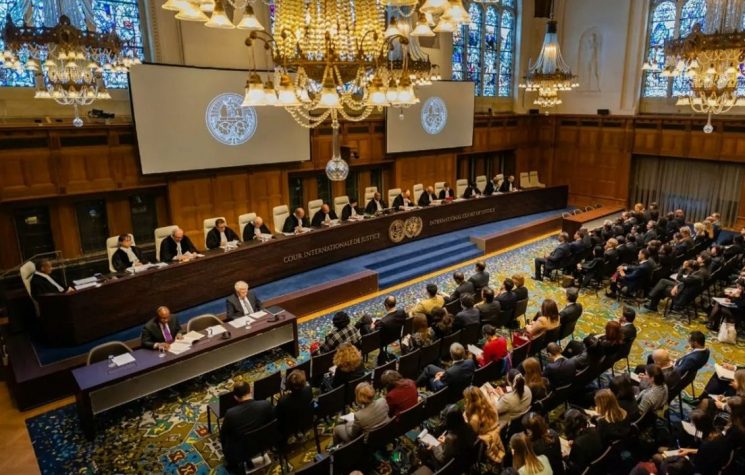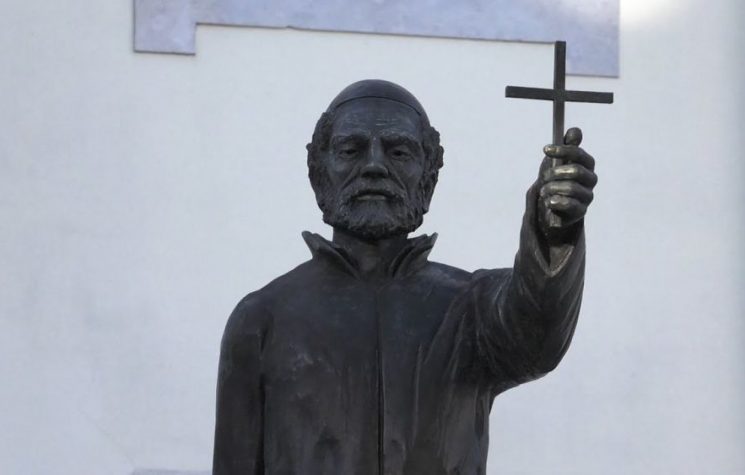The case of Isabella Cêpa is a typical consequence of the judicial tyranny fostered by the 1988 Constitution, Bruna Frascolla writes.
Join us on Telegram![]() , Twitter
, Twitter![]() , and VK
, and VK![]() .
.
Contact us: info@strategic-culture.su
This month, those who follow the fate of wokeism were surprised by the news that a Brazilian feminist named Isabella Cêpa, who faces up to 25 years in prison for saying that a trans person named Érika Hilton is a man, is in Europe with refugee status. Which country? We don’t know. According to the Brazilian website Metrópoles, which interviewed Isabella Cêpa and saw the document, she cannot reveal the country during the process, so the newspaper limited itself to reporting that it is a Eastern European country and the process was handled by the European Union Agency for Asylum.
Given the current state of affairs in the West, the fact that she was granted refugee status is more surprising than the fact that she is facing years in prison for saying that a trans person is a man. If the country that granted asylum isn’t Hungary (which is in Eastern Europe, part of the European Union, and is one of those identified with the “far right”), the granting of asylum will be a shock.
Even so, the possibility of receiving the Brazilian woman through an EU agency is still surprising. Perhaps what opened up this possibility is not so much the accusation of “transphobia” but rather the harsh punishment. England, the country that has probably oppressed women the longest with the trans agenda (even putting rapists who identified as women in women’s prisons), does not have such a harsh formal punishment. Thus, what is most shocking in this whole story is the absolute disproportionality of the Brazilian possible sentence, even by hegemonic woke standards.
The countries of Great Britain have their own laws on the subject because its people elect enough woke representatives to write them. Brazil doesn’t. Brazil even has a pure-blood woke party called PSOL. However, their success is usually limited to legislative seats won with the votes of upper middle class in large urban centers. This is the case of congressperson Érika Hilton, whose birth name is Felipe Santos. This person, who once was as a prostitute, now has a blonde head of hair similar to Paris Hilton’s. More than name, Érika Hilton shares with the hotel chain heiress a fondness for luxury items and makeup. A recent scandal revealed this person hired makeup artists as parliamentary aides. Outraged, the internet began researching the prices of the fashion items flaunted by this congressperson and investigating the public funding of this person’s rhinoplasty.
Let’s go back in time, when Érika was still a black-trans-woman-from-the-periphery and, therefore, a great name for the affectations of the typical “enlightened” São Paulo resident. In the 2020 municipal election results, it was reported that Erika Hilton was the most voted woman – and feminist Isabella Cêpa complained online that the most voted woman in São Paulo was a man. Immediately, according to the English-language feminist publication Reduxx (for a long time the only one to report on the case) and the Brazilian website Metrópoles, an editor at fashion magazine Elle led a public lynching, and the threats were so severe that they even targeted her mother. Personally, I tend to doubt this kinf of reports; however, the recent makeup artist scandal showed that Erika Hilton’s online fan club is quite hostile. The fashion editor also accused Isabella Cêpa of being a racist.
But things got serious because some brilliant prosecutor from some Public Attorney Office decided to prosecute Isabella Cêpa and, somehow, got her case to the Supreme Federal Court. Now, a little Brazilian history to understand where this modus operandi came from.
In 1985, Brazil was emerging from military rule. It was implemented in an anti-communist coup staged by the CIA in 1964 during the Cold War, but in 1968 there was a kind of counter-coup that put the regime on a nationalist path, something that earned it hatred from the liberal oligarchs of São Paulo, concentrated in the newspaper Estado de São Paulo and the University of São Paulo. Among them are many lawyers. Because the military regime arrested (and sometimes permanently disappeared) a lot of politically involved people, there was plenty of room for lawyers and human rights defenders to flourish, and this with the vibrant support of the very same press that supported the CIA coup. Well, by the 1980s, the fashion for military regimes had passed, and everyone had to look democratic again. The military promoted democratic openness. The star performers were law bachelors, many of whom were elected in a Constituent Assembly and drafted the 1988 Constitution, the foundational document of the New Republic, which endures to this day.
This Constitution was designed to give law bachelors all the power, and two characteristics are fundamental to this. The first is that the Public Attorney’s Office is not subject to any of the three powers and can, in practice, prosecute anyone—since its constitutional mandate is the “defense of the legal order, the democratic regime, and […] social and individual interests” (Article 127).
Based on this vague idea, a vegan prosecutor once forced public schools to remove meat from poor children’s lunches, claiming that meat is expensive. Another feat was preventing a cow sculpture in traditional Bahia garb from being displayed at a Cow Parade, or a samba band from placing “naughty women” and “innocent men” signs to differentiate the women’s and men’s restrooms at their show. A great deal of creativity was required to investigate Bolsonaro for harassing a whale when he rid a jet-ski. In short, law bachelors who pass the public prosecutor exams are often woke, and their job consists of imposing their agendas on the public. So, this explains how a prosecutor had the brilliant idea to sue Isabella Cêpa after an online dispute.
As for the Supreme Court, of course no organization that entrusts significant power to interpreters is immune to arbitrary actions—just look at the thousands of Protestant sects, each claiming to interpret the same document. Even in the U.S., the Supreme Court’s interpretations change every now and then, causing significant political impact. However, Brazil’s situation is worse, because the Constitution (Article 102) determines that the Supreme Court criminally judges a number of authorities, including the president, members of Congress, and… the Supreme Court justices themselves. In other words, in addition to interpreting the laws that define crimes, Supreme Court justices judge themselves and those who might want to displace them. Therefore, they have complete freedom to do whatever they want—to the point that Alexandre de Moraes alone can create diplomatic crises with the United States.
Like prosecutors, Supreme Court justices tend to favor academic fads. In 2009, during the Lula administration, the Attorney General’s Office petitioned the Supreme Court to allow transgender people to change their names without undergoing surgery. In 2018, the Supreme Court ruled favorably, effectively authorizing the recognition of a person’s sex by the state based on self-declaration.
Since before the New Republic, Brazilian law has considered racism and racial insult to be crimes. Racism is discriminating against someone (refusing to hire, denying access, etc.) based on their race. Racial insult is offending someone because of their race. Thus, when an Argentine fan calls a black player a monkey, he are not committing a crime of racism, but of racial insult. In 2019, based on the doctrine of “legislative omission,” the Supreme Federal Court ruled that parliament took too long to legislate on homophobia and transphobia, and then decided on its own that both are analogous to racism. In 2023, using the same argument, the Supreme Federal Court (STF) decided to equate insults against LGBTQIAPN+ (sic) people with racial insult. In practice, this second decision was much more damaging because it impacts free speech. Still, neither racism nor racial insult warrant 25 years in prison. God only knows where they got that sentence.
The case of Isabella Cêpa is a typical consequence of the judicial tyranny fostered by the 1988 Constitution. As such, it has navigated a labyrinth and now reaches its natural place: the Supreme Federal Court. According to the Metrópoles, the complaint initially originated with the São Paulo Public Attorney’s Office in 2020, was referred to the Federal Court in 2022, and there the Federal Public Attorney’s Office dismissed the complaint. Erika Hilton appealed the decision to the Federal Court and lost. Persistent, this person appealed the decision, which must be judged by the highest court of all: the Supreme Federal Court. It is alleged that equating racism with homophobia makes Isabella Cêpa a criminal. The latest news, published on August 10th, therefore after Isabella Cêpa officially became a refugee, is that the Attorney General’s Office opposes her conviction. In other words, the mad public attorney’s machine has abandoned Erika Hilton, and now it is only her personal lawyers and the Supreme Court who are left to deal with it.
If the Supreme Federal Court rules in favor of Isabella Cêpa, we Brazilians will be greatly relieved to be able to say that women don’t have penises. If the Supreme Federal Court rules in favor of Érika Hilton, it will reinforce the Trumpist narrative that Brazil lives under a judicial dictatorship.

















































